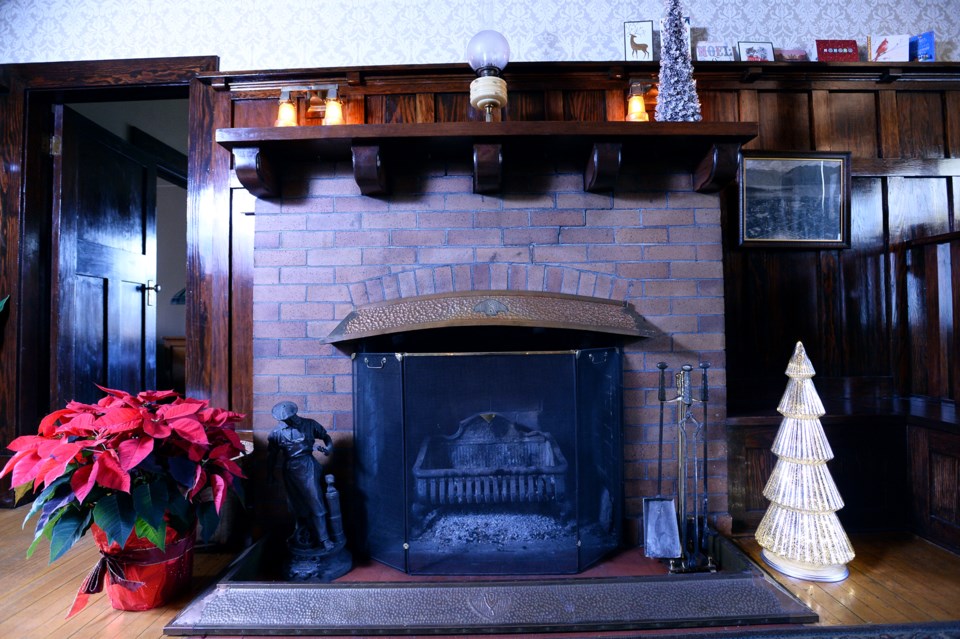The City of New Westminster supports Metro Vancouver’s efforts to regulate smoke emissions from indoor wood-burning appliances, but has a few suggestions on how the program can be enhanced.
With 27 per cent of the fine particle emissions in the region stemming from indoor residential woodburning appliances like fireplaces and stoves, Metro Vancouver is consulting with communities about regulating residential wood smoke emissions from indoor fireplaces. Metro Vancouver is proposing a phased-in approach to deal with the issue:
* A seasonal restriction on the use of indoor residential wood burning appliances between May 15 and Sept. 15 – beginning in May 2020.
* Registration requirements for indoor residential wood burning appliances, based on the amount of particulate matter released – beginning in September 2022.
* Prohibition of residential wood smoke emissions from unregistered appliances, unless other conditions apply, from September 2025.
“We are in the middle of consultation on the issue. Yes, it has been very contentious,” said Roger Quan, Metro Vancouver’s director of air quality and climate change. “We have a number of mechanisms for providing feedback on the regulations. We are actually probably going to extend the consultation period on the regulation, just to allow more time for the feedback.”
Quan said Metro Vancouver is proposing that woodburning devices be registered to ensure they’re able to meet a standard set by the Canadian Standards Association and the United States Environmental Protection Agency.
“It actually equates to 4.5 grams per hour,” he said of the standard. “So the newer wood stoves, the only type of wood stoves that are available for sale within the province of B.C. now under provincial regulation would meet that certification standard. There are probably situations where the use of Presto logs and formed logs would also be able to meet that standard.”
If a homeowner can demonstrate that their open-hearth fireplace meets the 4.5 grams per hour standard when burning certain types of wood, Quan said it would be able to be registered with Metro Vancouver.
“It’s not a complete ban,” he stressed. “I would call it a performance-based standard for residential woodburning. If you are able to emit at a level lower than 4.5 grams per hour, which is equivalent to the U.S. EPA-certified emissions, that would not be prohibited for use. Again, recognizing the contentiousness of the issue, we are advocating for a phased approach.”
Metro Vancouver is proposing a number of exemptions to the registration requirements, such as when the appliance is the sole source of heating or cooking in a home, when there’s an economic hardship or during emergency situations such as a power outage.
Coun. Chuck Puchmayr questioned if there is an ability to regulate the products being burned in fireplaces, as opposed to requiring people to install inserts. He noted that not all wood products are the same, with some pressed logs having few emisisons.
“The way we approach regulations, even for our industrial sources, is to either regulate the input to a process or regulate the discharge from a process,” Quan said. “The focus right now with the residential woodburning initiative is really looking at the discharge, but you make a very good point.”
If the City of New Westminster were to suggest Metro Vancouver allow certain types of fuels that meet 4.5 gram per hour emission standard, he said that’s something it could certainly be considered in the consultation process.
Coun. Jaimie McEvoy said a more robust grants program should be included as part of the initiative, as it’s expensive to install retrofits that would help fireplaces meet the emissions standard.
“A lot of these homes are owned by seniors for who a $700 or $1,000 layout is just too prohibitive to address this,” he said. “There are going to be people out there who want to do the legal thing, but don’t want to completely give up having a fire at Christmastime either.”
Council forwarded a staff report, which supported the region’s proposed bylaw to regulate smoke emissions, to Metro Vancouver, but asked it to consider an enhanced grant program to assist homeowners with retrofits to their fireplaces, to enhance education about wood-smoke emissions and to consider the regulation of certain fuels that could be used in fireplaces to meet emission standards.



